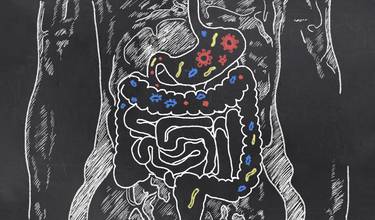What are diseases in the digestive system?
The digestive system consists of numerous organs, each with their own functions, and together they ensure the optimal digestion and uptake of the food we consume. When we ingest food, it passes from the mouth, through the oesophagus, to the stomach, where it is mixed with stomach acid and different enzymes that initiates the digestion. From there, it is lead to the duodenum and the small intestine, where the common bile dust from the liver and the pancreas is emptied. These two organs deliver enzymes and salts, necessary for a more effective digestion and nutrient absorption. Diseases in the digestive system can therefore occur in many different organs, but they all have one thing in common; they limit the effectiveness of our ability to digest food and therefore our ability of absorb nutrients. The body cannot function without nutrients from the gastrointestinal system, since nutrients are essential for life.
What are the symptoms of diseases in the digestive system?
Given the large number of organs involved, the symptoms of diseases in the digestive system are plentiful. Some symptoms can be:
- Stomach aches
- Blood in the stool
- Constipation
- Bloatedness
- Diarrhoea
- Nausea
- Vomiting
- Acid reflux
- Trouble swallowing
What are the causes of diseases in the digestive system?
Some diseases are caused by inflammation in the digestive tract. Some diseases involving inflammation of the digestive system are caused by a virus or a bacterium, e.g. ulcers or food poisoning, while others are caused by an autoimmune response, meaning a wrongful attack of the body’s own defences on something harmless; i.e. gluten intolerance, colitis ulcerosa, and Crohn’s disease. Other diseases can be caused by an excessive alcohol intake e.g. liver inflammation (hepatitis) or inflammation of the pancreas. Furthermore, one can be born with an illness making it difficult to properly digest food. This can be due to defective genes, coding for digestive enzymes or an anatomically misshapen gastrointestinal system causing food to either not be properly broken down for absorption or unable to pass through the gastrointestinal system. Other diseases are, to a large degree, related to one’s lifestyle - one such disease is gall stone. Malignant tumours in the gastrointestinal system can similarly cause serious illnesses.
What are the treatment options?
Since there is a myriad of diseases that can affect the gastrointestinal system, and each affect the system in their own way, treatment will also vary greatly based on the disease in question. Some diseases pass by themselves over the course of a few days while others can be treated with a brief medical treatment, still others require surgery, where the affected areas are removed.








